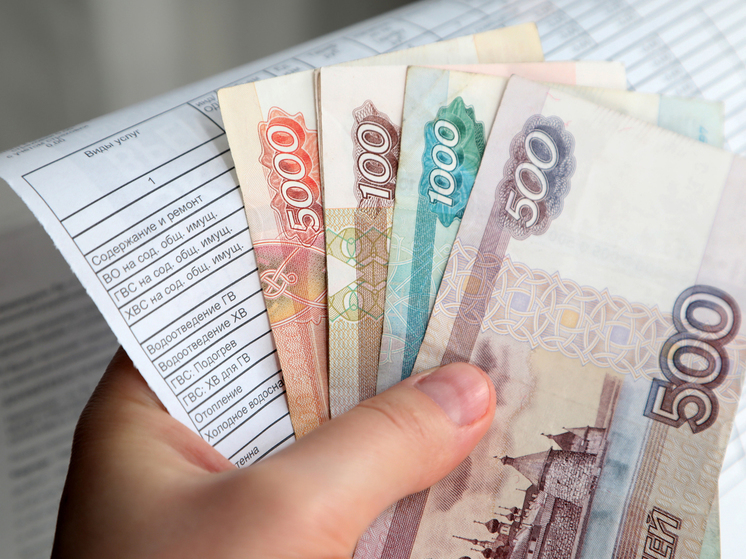Rate increase since July – up to 22 percent
Muscovites have started receiving bills with increased utility rates that came into effect in July. The difference in figures compared to previous months is quite significant: the cost of some services has increased by 15-17%, and some by 20-22%. Experts have no doubt: the population's debts for housing and communal services, already significant, will increase sharply.

— People often do not understand the difference between utility services and housing services. They see that the amount on the receipt has increased, and often think that the management company is to blame,” says Valery Mamchur, chairman of the public organization Housing and Communal Services Control in the Moscow region. — Although the management company itself does not raise prices, and the cost of maintaining the house and current repairs may not increase at all for years: the residents and owners make the decision. But the decision to increase the price of utility resources (water, electricity, gas, garbage collection), for example, in Moscow is made by the Department of Economic Policy and Development, in the region — by the Committee on Prices and Tariffs. The regulator, in essence, is the state, which does not allow residents to independently set the cost of services. Otherwise, this cost would never have increased!
— Resource suppliers have a strong lobby. Resource providers have never been and will never be in the red. They use all possible ways to increase the cost of their services. Another thing is that management companies pay for resources, and it is not always easy for them to find funds because of debts from citizens. Every week, the government holds meetings during which resource organizations ask management companies: why such debts? Why do you work poorly with the population?
— Yes, in theory, after three months of delay, the negligent owner should be sued and the debt collected by force. But bailiffs are not interested in «minor» debts, they are already overloaded with work. And now, with the increase in the state fee for filing a lawsuit by at least five times, and at most 50 times, even more so. Previously, the management company paid 400 rubles, and now the state fee is comparable to the amount of debt, or even more.
— The deferments and concessions are over, but… the number of debtors is growing every month! The population's debts are growing, growing, growing. Salaries in the country are not growing, inflation is huge. We go to the store and see that a pack of butter, which, for example, cost one hundred rubles a year ago, now costs 180… And this is not at all 10-15%, as we are told about the official inflation. The same applies to receipts. We remember that last year we paid, say, 3.5 thousand rubles for an apartment, and now the amount on the paper is 4.5 thousand. People choose: to pay for an apartment or buy food and medicine for a week, go to a restaurant or a cultural park on the weekend? Most often, the personal interests of citizens become a priority.
— Pensioners, the older and very responsible generation, always pay on time. If the bill has not arrived on the due date, they call the management company and demand that they bring it to them as soon as possible. And the defaulters are, first of all, young people, among whom there are many socially irresponsible people.
— Of course! Muscovites' debts amount to billions of rubles, they are not going anywhere. Alas, this phenomenon is quite normal and explainable, there is nothing new. The population has always been indebted and will be. This is just the mentality of the people.
Heating is the most expensive service. How was payment done before? At the end of the year, the actual costs for the season were calculated. And residents of apartments without meters, who paid evenly, received an additional receipt for actual heat consumption every month for a year. If the winter was warm, the overpayment was returned to people; if it was frosty, citizens were given receipts with a one-time recalculation. In the latter case, the amount could be burdensome for people. Now, in the event of severe and prolonged cold weather, the cost of overexpenditure will begin to “spread out” throughout the next year. There is one more innovation: heating payments will be made based on average monthly consumption volumes over the previous five years. In this situation, actual consumption volumes may deviate within 3%, whereas previously fluctuations in one direction or another reached up to 26%.
cold water supply — 59.80 rub. per cubic meter (plus 17.4%);
for hot water supply — 272.14 rubles. per cubic meter (plus 11.9%);
for water disposal (sewage) — 45.91 rubles. per cubic meter (plus 14.9%).
Tariff for central heating: RUB 3,217.19 per gigacalorie (plus 10.5%).
in houses without electric stoves — RUB 6.99 per kW⋅h (plus 8.7%);
in houses with electric stoves — RUB 6.15 per kW⋅h (plus 8.7%);
in houses with electric stoves with differentiation by time in two zones: during the day RUB 7.45 per kW⋅h (plus 7.8%), at night — RUB 3.02 per kW⋅h (plus 15.3%);
in houses with electric stoves with differentiation in three zones: during peak hours — RUB 8.94. per kW⋅h (plus 8.6%), during semi-peak hours — RUB 6.15 per kW⋅h (plus 8.7%), at night — RUB 3.02 per kW⋅h (plus 15.3%).
RUB 846.43 per cubic meter (plus 0.55%).
in Troitsky and Novomoskovsky administrative districts: for cooking and heating water — RUB 8.05 per cubic meter (plus 22.3%); for heating a private home — RUB 7,335.84 per 1,000 cubic meters (plus 11.2%);
in other districts: for cooking and heating water — RUB 9.00 per cubic meter (plus 11.2%); for heating a private home — RUB 7,080.75. per 1000 cubic meters (plus 22.4%).


